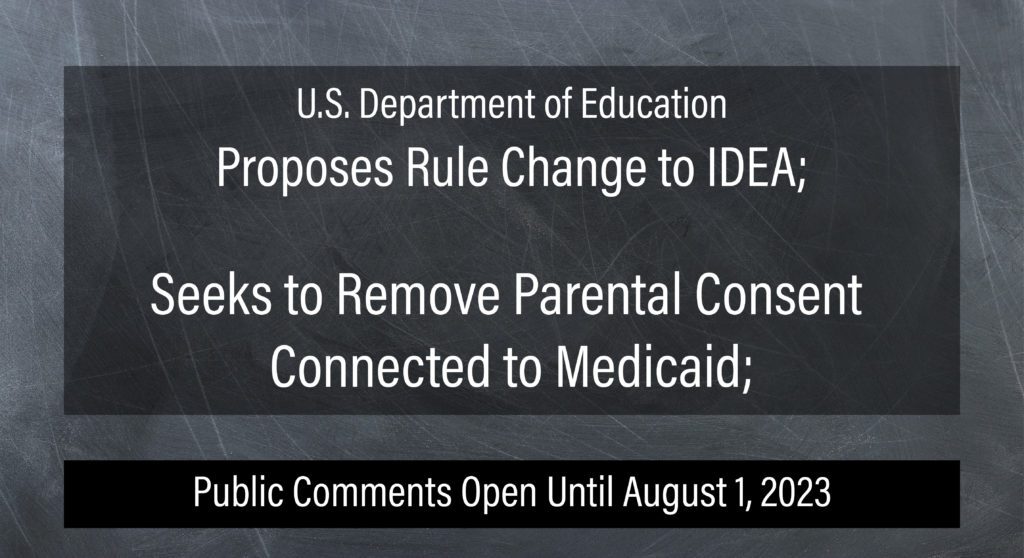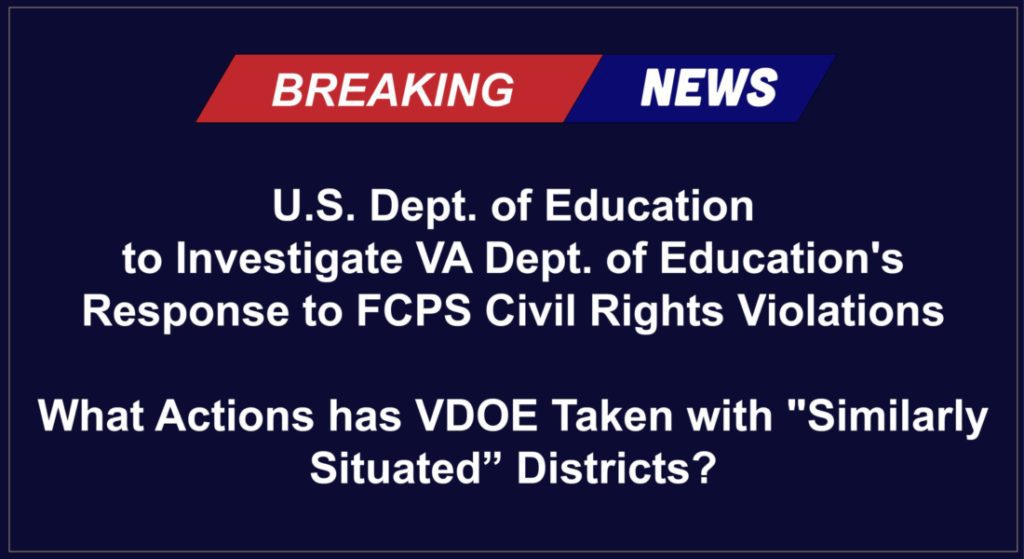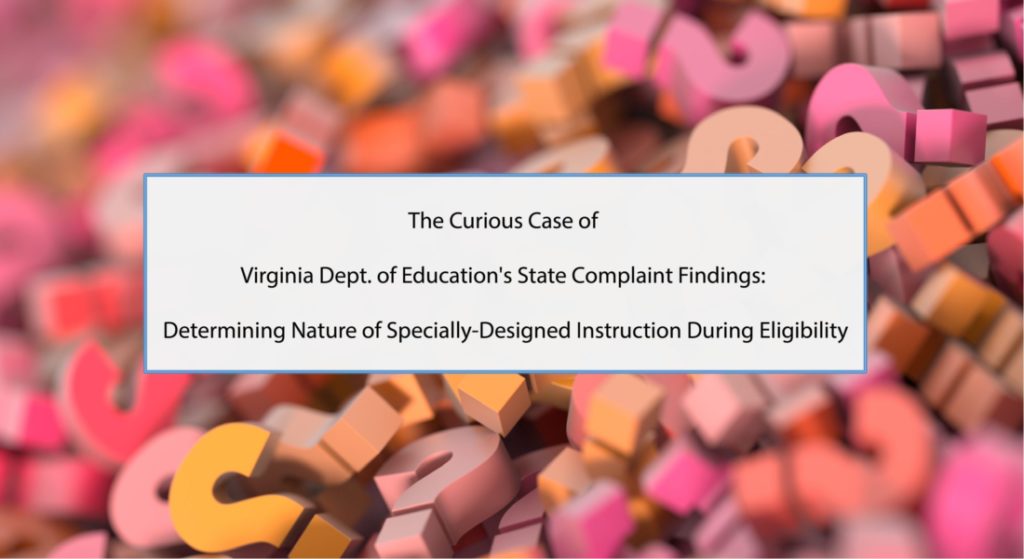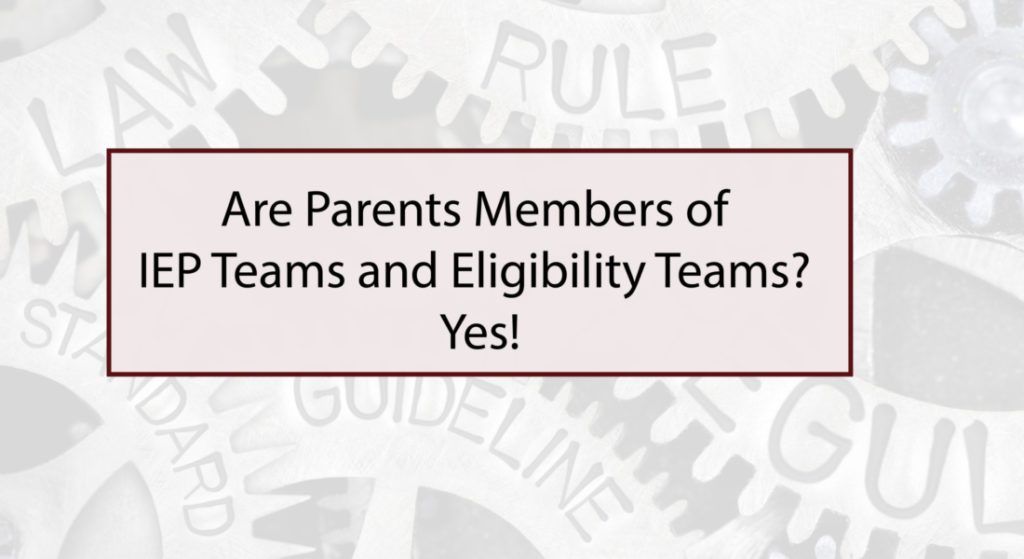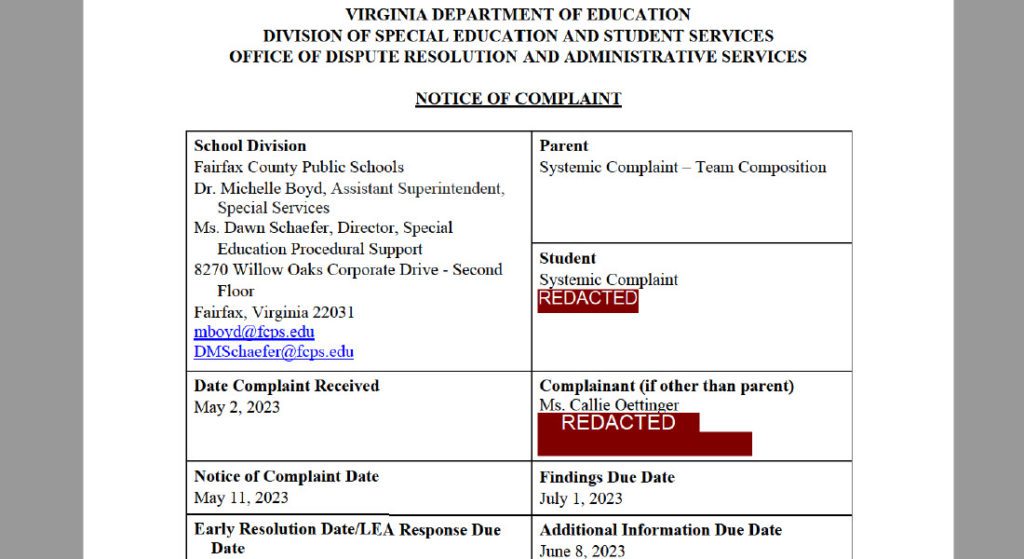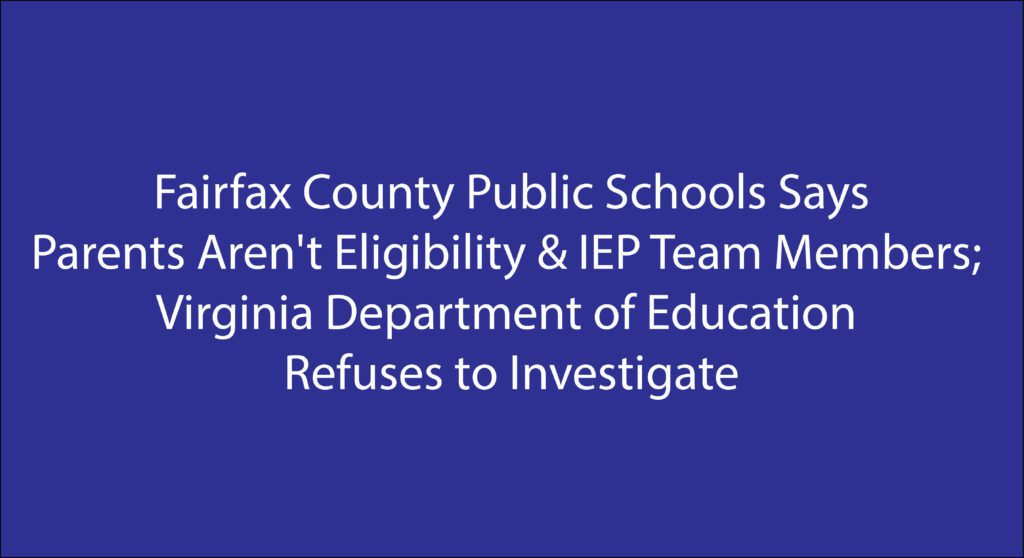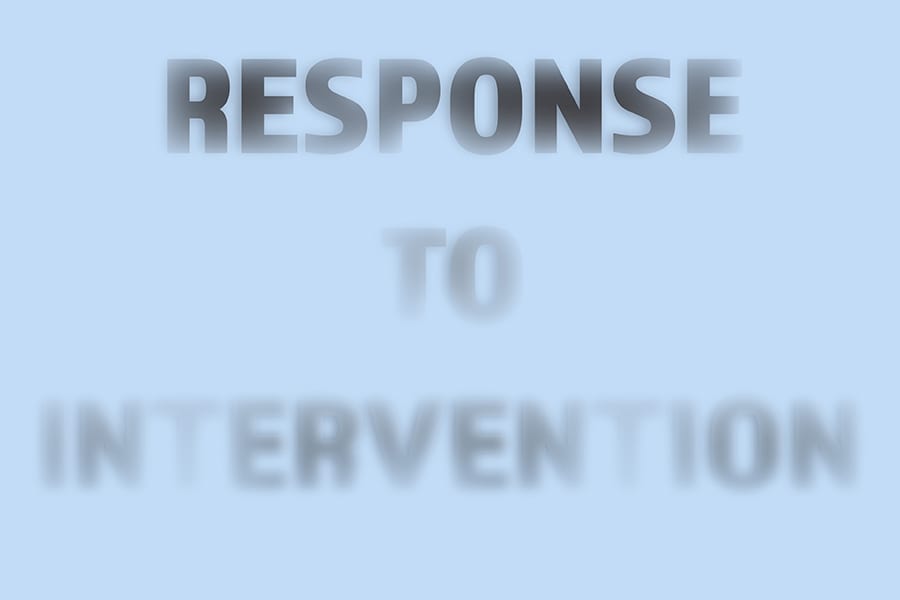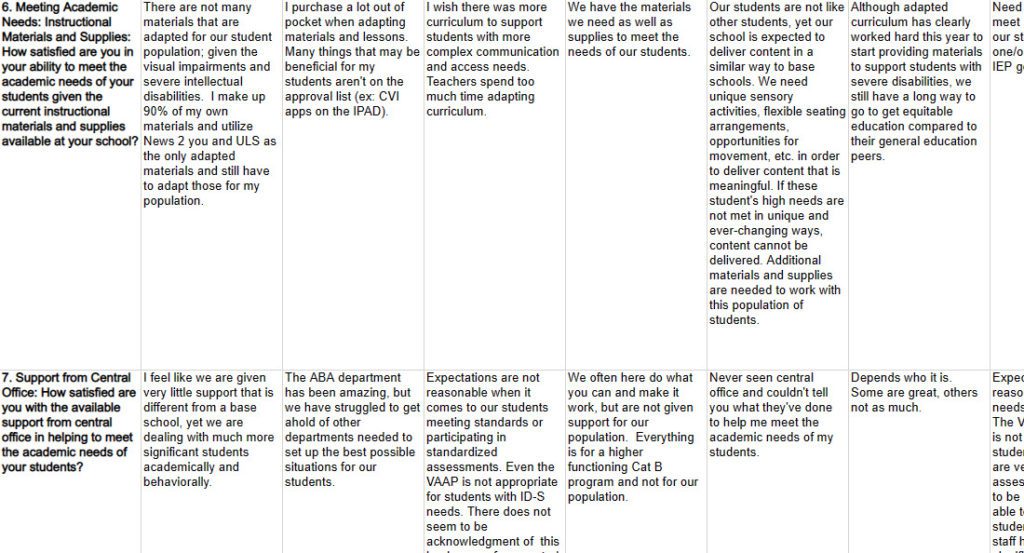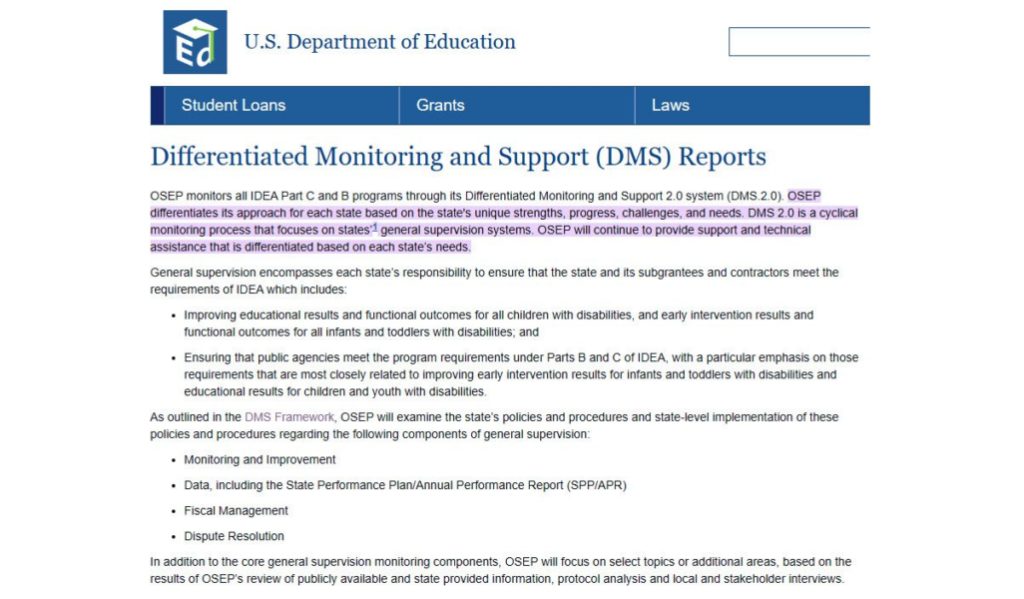U.S. Department of Education Office for Civil Rights FOIA Responses
Dear VDOE: Is it Okay for Compliance Specialist to Write “I’m Winging It” in Investigation Letter of Findings?
These are the words of a compliance specialist writing a Letter of Findings in response to a state complaint investigation.
They also are the words that no parent wants to see written by a compliance specialist.
Dear VDOE: Is it Okay for Compliance Specialist to Judge, Joke at the Expense of Parent Advocating for Her Child?
Here’s another curious comment that appears in the same document:
“This is my justification for the length of the narrative in this case—they made me do it!! ? I wanted to separate the three categories of requests that Parent had initiated las summer — IEP, ESY, Reevaluation, Reading inventory testing. Sheesh. It shows the confusing atmosphere that FFX handled professionally. She was making lots of FFX staff work, sometimes in conflict with others. Please edit and make it better, ML.”
U.S. Dept. of Ed. Proposes Rule Change to IDEA; Seeks to Remove Parental Consent Connected to Medicaid; Public Comments Open Until August 1, 2023
This proposed change is open for public comment until August 1, 2023.
U.S. Dept. of Education to Investigate VA Dept. of Education’s Response to Fairfax County Public Schools Civil Rights Violations; What Actions has VDOE Taken with “Similarly Situated” Districts?
The announcement came in a May 12, 2023, letter from Valerie Williams, director of OSEP, to Lisa Coons, VDOE’s new superintendent of public instruction and is a follow up to OSEP’s February 17, 2023, letter to Coon’s predecessor Jillian Balow, which announced OSEP would be conducting additional monitoring activities, to include an on-site investigation. According to the May 12 letter, the on-site will occur during the week of September 25, 2023.
The Curious Case of Virginia Dept. of Education’s State Complaint Findings: Determining Nature of Specially-Designed Instruction During Eligibility
United States Department of Education Office of Special Education Programs has noted VDOE’s problematic state complaints a few times, in differentiated monitoring support letters dated June 23, 2020, February 8, 2022, March 16, 2022, September 1, 2022, January 17, 2023, and February 17, 2023.
Yet, VDOE’s state complaint process remains as bizarre as ever, with VDOE’s investigation decisions reading as if VDOE didn’t so much a peek at the evidence—more Ace Ventura than Sherlock Holmes.
In this case, VDOE makes a statement of noncompliance, but then finds Fairfax County Public Schools in compliance for that exact action.
Virginians: $1,500 and $3,000 Grants are Available to Help Your Children
Learn who is eligible and how to apply.
Are Parents Members of IEP Teams and Eligibility Teams? Yes!
Parents have key roles in evaluations preceding eligibility determinations, in the actual eligibility determinations, and in IEP development following determinations. For evaluations, as one example, members must draw upon information from various sources, including parent input. This doesn’t mean schools simply have to consider parent input and then decide if they’ll use it or not. They are required to draw from parent input.
In this article, you’ll find federal regulations (as well as Viriginia regs for those in the area), that define and guarantee parents’ rights.
VA Dept. of Ed Opens Systemic Investigation into Fairfax County Public Schools: Team Composition
The complaint alleges that specifically, since at least 2017, FCPS has engaged in the following: a) holding IEP meetings that are in noncompliance with IDEA and implementing state regulations; b) unauthorized practice without a license; c) unlicensed “diagnosis and treatment of human physical or mental ailments, conditions, diseases, pain, or infirmities”; d) procedural violation of Parent’s and Student’s opportunity to participate in the decision-making process regarding the provision of FAPE to Student.
Fairfax County Public Schools Says Parents Aren’t Eligibility & IEP Team Members; VA Dept of Education Refuses to Investigate
In other words: FCPS is in noncompliance for refusing Parents rights’ to be deciding members of eligibility and IEP teams.
A Response to Intervention Cannot Be Used To Delay Or Deny An Evaluation For Special Education Services
According to the U.S. Department of Education (USDOE), in its 1.29.19 Letter to Zirkel, “IDEA does not define RTI . . . RTI is only mentioned in IDEA when determining eligibility for specific learning disability. 20 U.S.C. § 1414(b)(6)(B) and 34 C.F.R. § 300.307(a)(2).”
However, the United States Department of Education has stated that, “States and LEAs have an obligation to ensure that evaluations of children suspected of having a disability are not delayed or denied because of implementation of an RTI.”
Fairfax County Students & Educators in Crisis; FCPS Delays Release of Damning Data
Data collected from a survey of administrators and staff at FCPS’s five day schools—Burke, Cedar Lane, Key Center, Kilmer School, Quander Road—indicates the schools are understaffed, under-resourced, and woefully unable to meet the academic, functional, and behavioral needs of their students. In addition, staff are struggling on a day-to-day basis with their workloads, while simultaneously being concerned about the safety of the students and of themselves.
Virginia Remains Outlier as U.S. Dept. of Education Announces Close-Out of Monitoring in Arizona, Delaware, Florida, Hawaii, and Arizona
USDOE announced monitoring of Hawaii in 2019; of Arizona, Florida, and Virginia in 2020; and of Delaware in 2021. USDOE closed out monitoring of four of the five states within one-to-three years.
In the case of Virginia, it is on track to take more than three years to come into compliance with Individuals with Disabilities in Education Act (IDEA).


